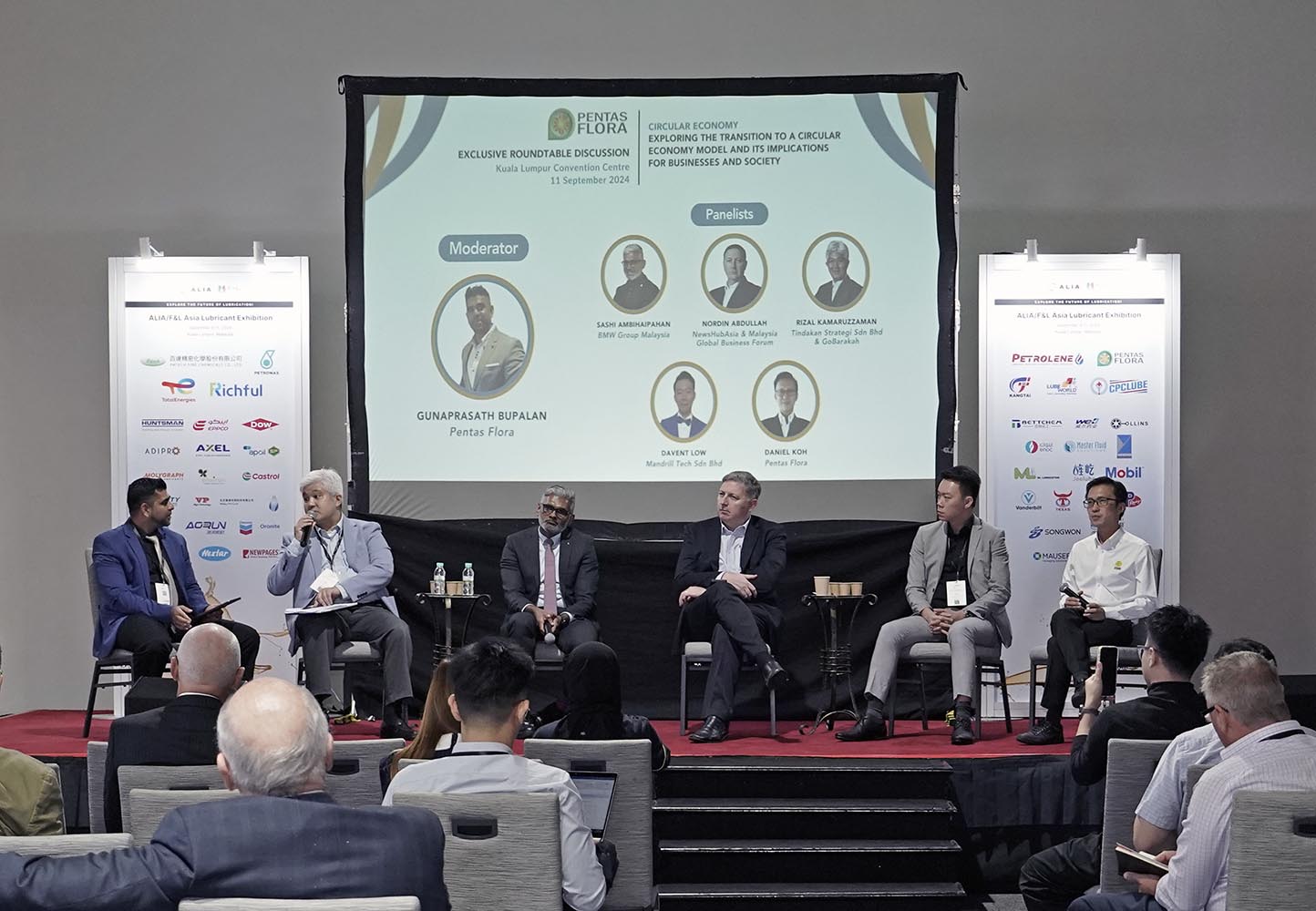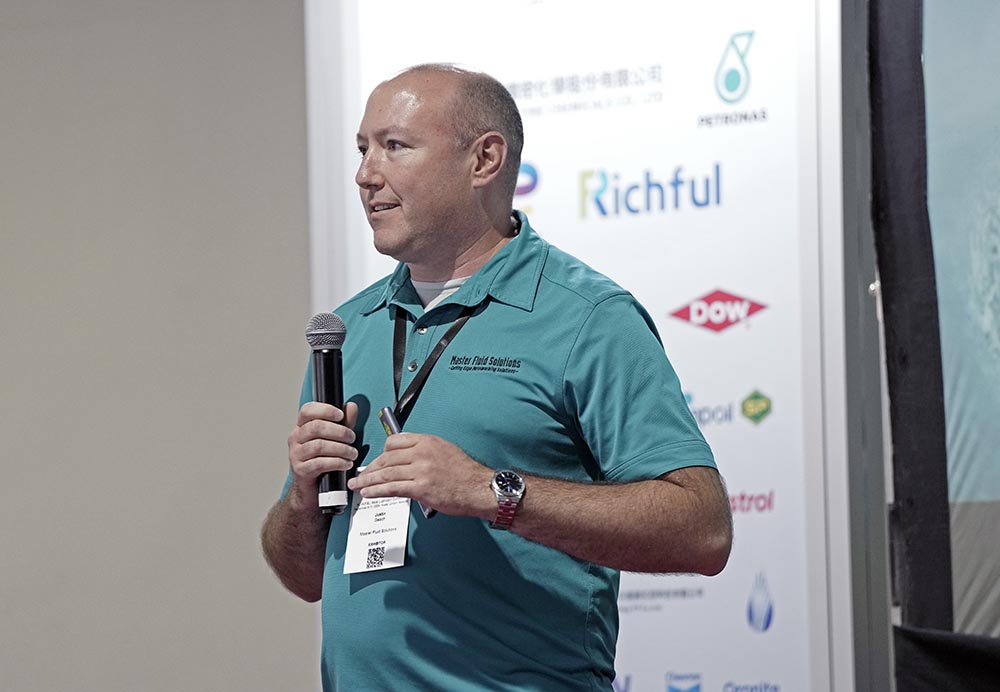
Balancing innovation and policy: Key takeaways from ALIA/F&L Asia roundtable
The ALIA/F&L Asia Lubricant Exhibition, held from September 9-11 in Kuala Lumpur, Malaysia, featured a business roundtable that explored the transition to a circular economy and its implications for businesses and society. The discussion highlighted the need to move away from the traditional linear “take-make-dispose” economy towards a more sustainable model.
Panellists included Sashi Ambi, head of corporate communications and sustainability at BMW Group Malaysia; Nordin Abdullah, founder of NewsHubAsia and Malaysia Global Business Forum; Rizal Kamaruzzaman, executive director of Tindakan Strategi Sdn Bhd and co-founder of GoBarakah; Davent Low, CEO of Mandrill Tech Sdn Bhd; and Daniel Koh, head of plant operations at Pentas Flora. The session was moderated by Gunaprasath Bupalan, head of corporate communications at Pentas Flora.
The panel emphasised the importance of government support in driving the shift to a circular economy. Malaysia has been proactive, recognising the potential for sustainable development and enhanced national competitiveness. Investments have been made in infrastructure for waste collection, with collection points established nationwide, and various sectors such as waste management and recycling have adopted circular economy initiatives. Although there are no specific regulations for lubricants, they fall under Malaysia’s broader environmental and waste management laws.
However, challenges remain. In 2022, Malaysia generated 38 million metric tons of solid waste, a figure projected to reach 45 million metric tons by 2030. The panel identified waste management, manufacturing, and agriculture as the key areas of focus.
The panel also discussed the importance of balancing policies and innovation. While regulatory frameworks and scope emissions reporting are essential, they warned of getting too caught up in compliance at the expense of innovation. Private companies were urged to take “baby steps” and drive change through small, innovative actions. Nordin Abdullah emphasised the need for a paradigm shift in public perceptions of waste, reframing it as “residue” with potential value rather than something to be discarded.
Similarly, Davent Low discussed how artificial intelligence (AI) and IoT (Internet of Things) technologies can help companies monitor and reduce waste, particularly in energy and water usage, by leveraging data analytics and real-time monitoring.

In a separate presentation, Justin Geach, global director of marketing of Master Fluid Solutions, highlighted the potential of fluid recycling in the machining and metalworking sectors. However, he stressed that recycling is a complex process often implemented without a full understanding, leading to failures. Geach underscored the critical role of education in ensuring fluids, whether ester-based or mineral oil-based, are recycled before they become depleted, ensuring sustainable reuse. He also emphasised the need to ensure we develop fluids that have the capability to be recycled.














